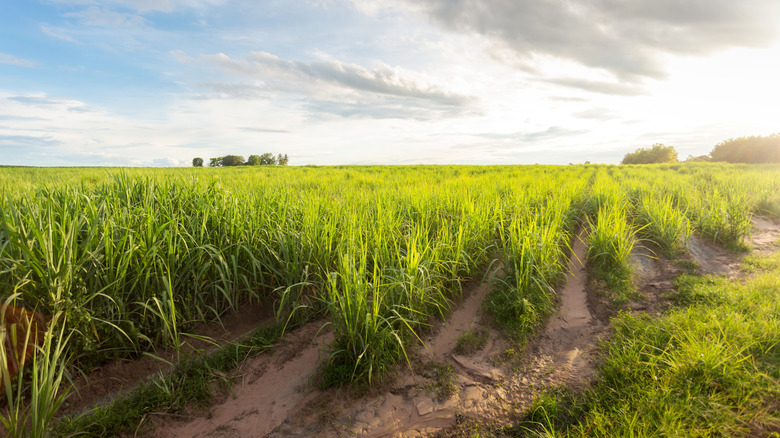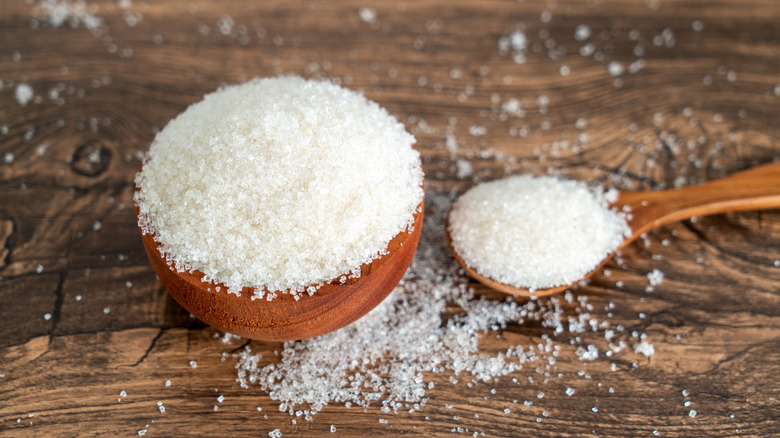The Country That Produces The Most Sugarcane In The World
Sugarcane isn't just the world's sweetest crop — it's also the world's most mass-produced food by sheer volume. But don't go thinking all that sugarcane ends up in coffee and cookies. Sugarcane is also the source of paper, alcohol, biofuel, animal feed, and even fertilizer. It's an extremely useful crop, and when it comes to production, Brazil takes the cake. According to World Population Review, the nation produces nearly 863 million tons a year, while India and China trail behind with roughly 541 million and 115 million tons, respectively.
Though sugarcane originated in the South Pacific Islands, trade routes spread it across the globe, eventually planting deep roots in Brazil during the colonial era. The country's tropical climate with plenty of sunshine and rain turned out to be a perfect match for the crop. Combine that with modern farming techniques and abundant natural resources, and Brazil was bound for sugarcane success. Today, it's no surprise that sugarcane isn't just a top crop in Brazil, but an economic powerhouse.
Brazil's sugarcane in the global market
Brazil doesn't just lead the world in sugarcane production, but also in sugar exports. According to TradeImeX, the country shipped out $18.83 billion worth of sugar in 2024, accounting for about 40% of global exports. Of all the sugar it produces, roughly 70% leaves Brazil, while the remaining 30% stays home to fuel its own industries (and appetites). When it comes to sweet-toothed customers, China and Southeast Asia take in 28%, followed by the Middle East and North Africa at 25%, per Brazilian Sugar Exporters.
So, how is all this sugarcane used? We all know the juice from these tall grasses is converted into sugar, both cane and granulated varieties. Cane sugar differs from granulated sugar because it's always derived from sugarcane and is less processed, creating larger, amber crystals. Granulated sugar, however, can also come from sugar beets, athough 80% still comes from cane (per World Population Review). The many types of sugar processed from sugarcane include the common white and brown, along with turbinado, caster, and muscovado.
Brazil exports raw sugar, refined sugar, and sugarcane sticks — the same kind you might find garnishing your mojitos. However, the nation's sugar exports extend beyond culinary uses. Brazil is also the world's leading producer and exporter of sugar-based ethanol, which is made by fermenting and distilling natural sugars. This ethanol is used not only for alcohol but also biofuel, helping Brazil pave the way for a more sustainable future.


